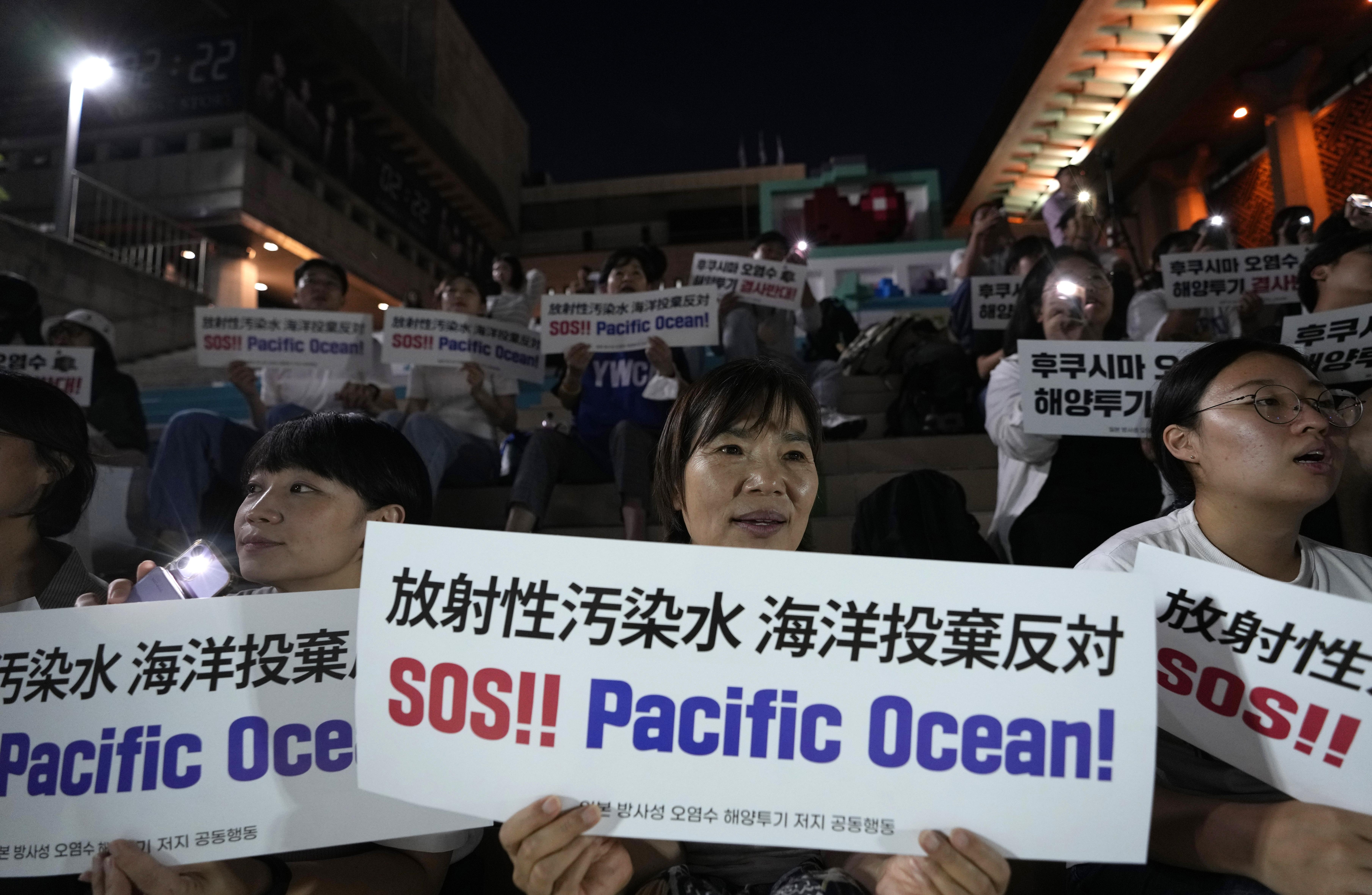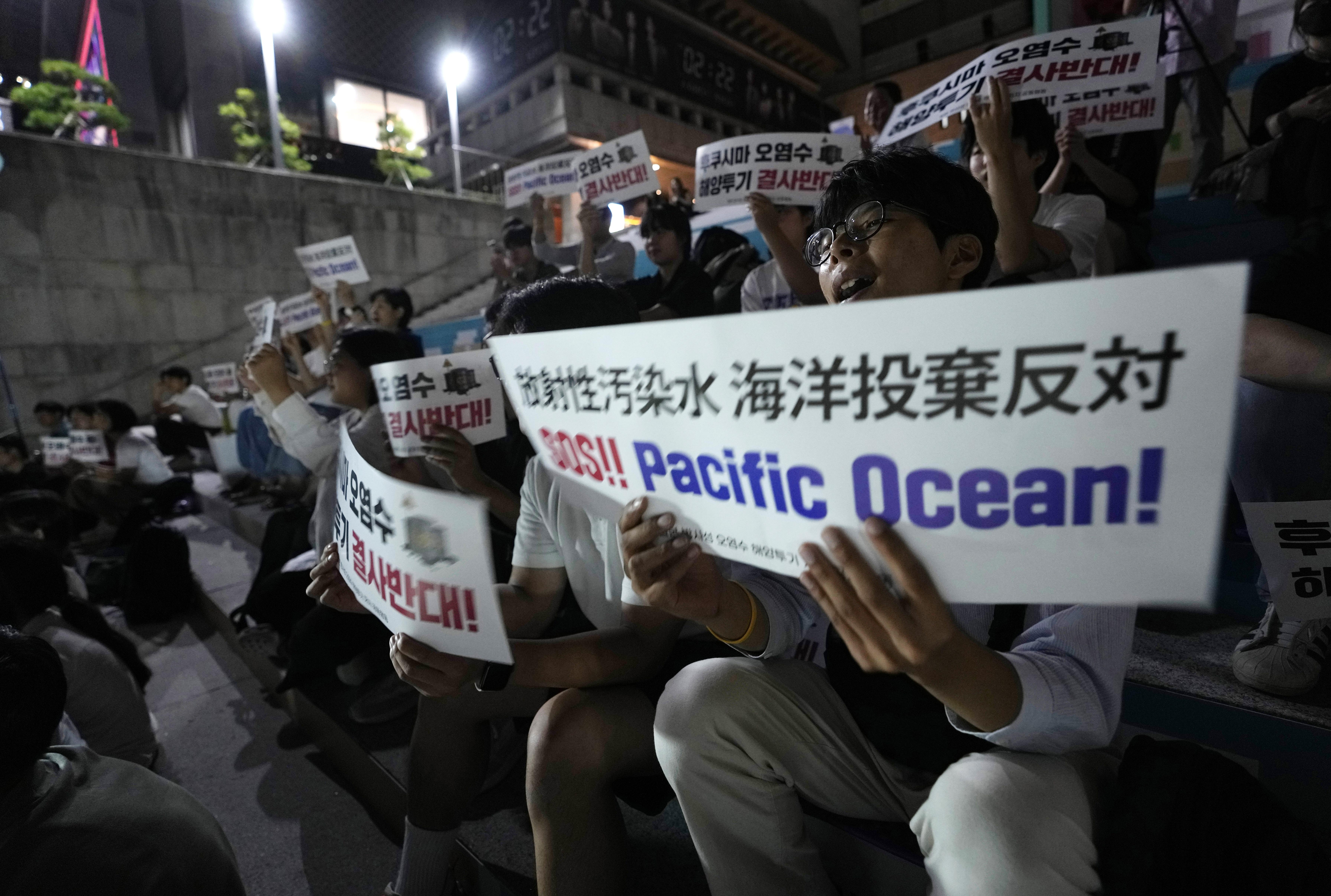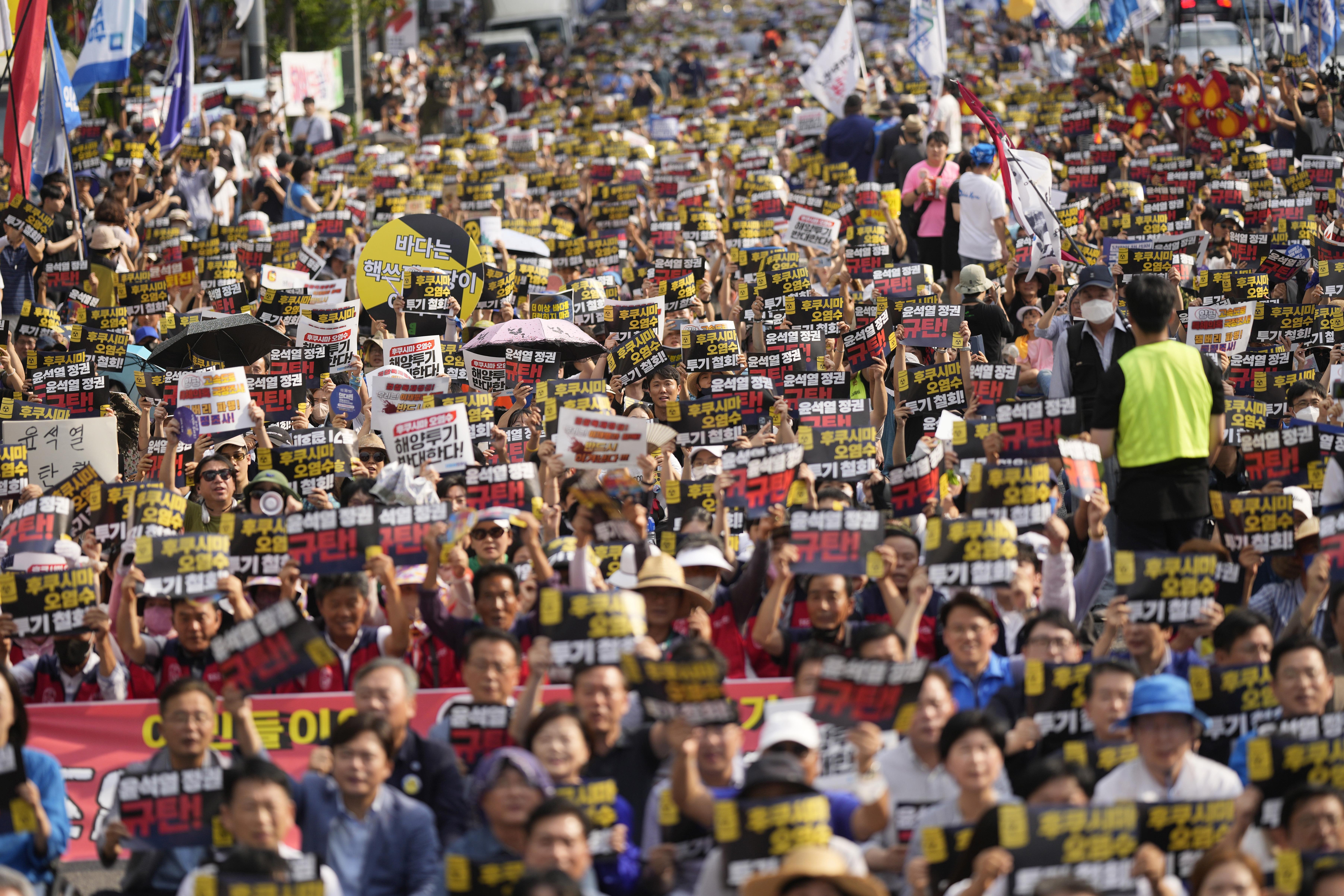 Protesters stage a rally to demand the stop of Japan's release of treated radioactive water into the sea from the damaged Fukushima nuclear power plant and denounce the South Korean government's policy in Seoul, South Korea, Aug 31, 2023. (PHOTO / AP)
Protesters stage a rally to demand the stop of Japan's release of treated radioactive water into the sea from the damaged Fukushima nuclear power plant and denounce the South Korean government's policy in Seoul, South Korea, Aug 31, 2023. (PHOTO / AP)
SEOUL/TOKYO - Lawmakers of South Korea's main opposition Democratic Party held an overnight rally against Japan's dumping of nuclear-contaminated wastewater into the ocean.
The legislators gathered in the National Assembly building on Thursday night to participate in the protest rally that continued until Friday morning.
The participants shouted slogans of "The Japanese government must immediately stop dumping Fukushima nuclear-contaminated wastewater into the ocean" and "The ocean of life and the ocean of everyone, let's protect it," urging the South Korean government to take action against it.
ALSO READ: S. Korea to keep import ban on Japan's fishery products in place
Against the backdrop of a placard that read "Stop marine dumping of Fukushima nuclear-contaminated wastewater," Lee Jae-myung, leader of the Democratic Party, denounced Tokyo for causing troubles to innocent people.
 Protesters stage a rally to demand the stop of Japan's release of treated radioactive water into the sea from the damaged Fukushima nuclear power plant and denounce the South Korean government's policy in Seoul, South Korea, Aug 31, 2023. (PHOTO / AP)
Protesters stage a rally to demand the stop of Japan's release of treated radioactive water into the sea from the damaged Fukushima nuclear power plant and denounce the South Korean government's policy in Seoul, South Korea, Aug 31, 2023. (PHOTO / AP)
The bills also sought to legislate the right to indemnity claims against the Japanese government by creating a fund first to support the affected, such as fishermen, merchants and those processing and distributing fishery products, and demanding reimbursement from the Japanese government later
"Nuclear-contaminated wastewater is spreading in the Pacific Ocean. Something unprecedented in human history is happening. None of our fishermen and people have done anything wrong and been responsible, but the damage is ours," Lee said during the rally.
The Democratic Party has pushed for a set of bills to ban the import of all aquatic products feared to be exposed to the radioactive wastewater, including seafood from Fukushima and other regions.
READ MORE: Tokyo miscalculating the profit and loss
Under the bills, the country-of-origin regulation would be strengthened to prevent processed food, made of seafood from Fukushima and other dangerous regions, from being distributed here, while recognizing radioactive wastewater damage as a fishing disaster to support the fishing industry.
The bills also sought to legislate the right to indemnity claims against the Japanese government by creating a fund first to support the affected, such as fishermen, merchants and those processing and distributing fishery products, and demanding reimbursement from the Japanese government later.
ALSO READ: S. Korean lawmakers march to oppose wastewater dumping
Struck by a massive earthquake and an ensuing tsunami in March 2011, the Fukushima nuclear power plant suffered core meltdowns and generated a massive amount of water tainted with radioactive substances from cooling down the nuclear fuel.
 Thousands of South Korean protesters shout slogans during a rally to demand the stop of Japan's release of treated radioactive water into the sea from the damaged Fukushima nuclear power plant, denounce the South Korean government's policy in Seoul, South Korea, Aug 26, 2023. (PHOTO / AP)
Thousands of South Korean protesters shout slogans during a rally to demand the stop of Japan's release of treated radioactive water into the sea from the damaged Fukushima nuclear power plant, denounce the South Korean government's policy in Seoul, South Korea, Aug 26, 2023. (PHOTO / AP)
Japan started discharging the first batch of radioactive wastewater from the crippled Fukushima Daiichi nuclear power plant into the Pacific Ocean on Aug 24.
Minamata victims call halt
Japanese groups of Minamata disease victims have called for the Japanese government to put an immediate stop to discharging nuclear-contaminated wastewater from Fukushima into the ocean to avoid repeating the tragic history of Minamata disease.
Minamata disease victim groups from Japanese prefectures of Kumamoto and Niigata held a press conference on Thursday, warning against ignoring the potential health risks posed by the nuclear-contaminated wastewater dumping.
READ MORE: Double standards on Japan's wastewater discharge blasted
Koichiro Matsunaga, a 60-year-old patient with fetal-type Minamata disease who attended the press conference, emphasized that the Japanese government had "completely failed to learn from the lessons of Minamata disease."
During the 1950s and 1960s, the residents of Minamata city in Kumamoto prefecture and the Agano River Basin in Niigata prefecture suffered from mercury poisoning due to the continuous discharge of mercury-contaminated wastewater by local chemical industries.


